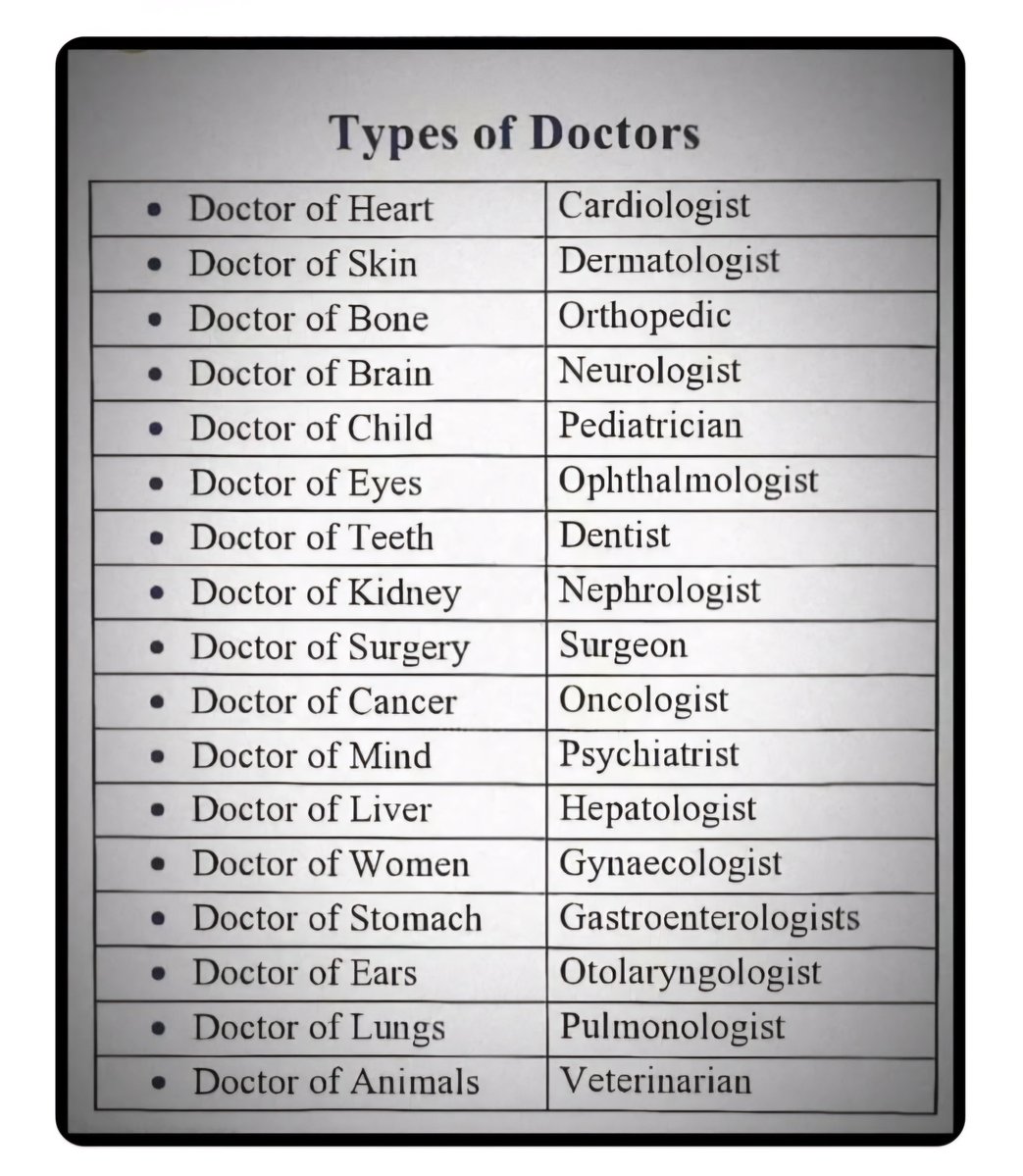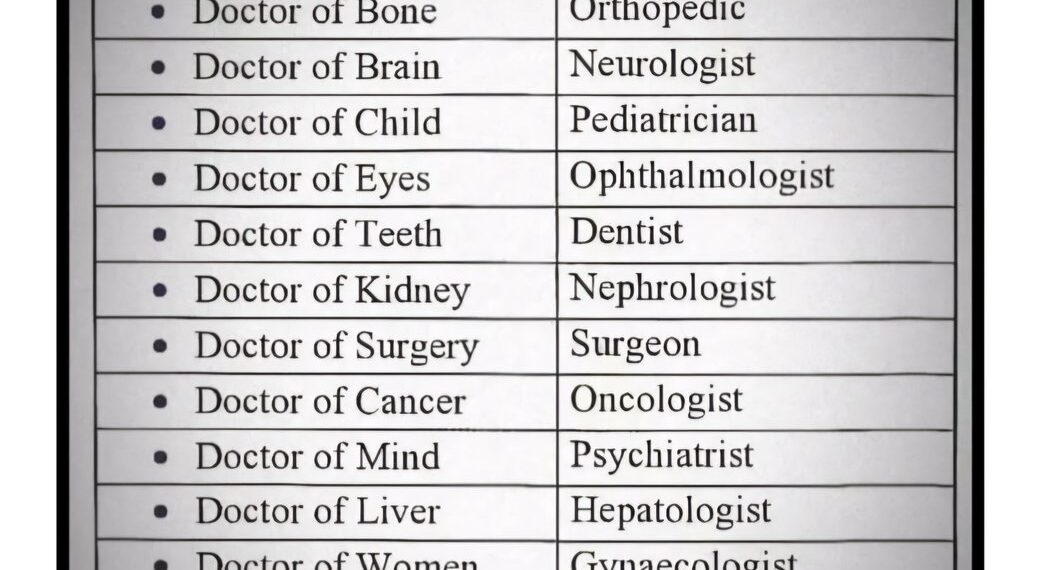Select Language:
Discover the Most Common Types of Doctors You Should Know in 2025

1. General Practitioners (Family Doctors)
General practitioners, also known as family doctors, serve as the first point of contact for most patients. They provide comprehensive health services, from routine checkups to diagnosing various illnesses. With their broad training, they manage everything from minor ailments to chronic conditions, making them essential in maintaining community health. Many patients see their family doctor regularly for preventive care, vaccinations, and health screenings.
2. Pediatricians
Specifically trained in children’s health, pediatricians focus on the medical needs of infants, children, and adolescents. They monitor growth and development, administer vaccinations, and treat illnesses unique to younger patients. Pediatricians also guide parents on nutrition, behavioral issues, and developmental milestones. As the needs of children evolve, pediatricians remain vital in early health interventions.
3. Cardiologists
Heart health specialists, cardiologists diagnose and treat conditions related to the cardiovascular system. This includes managing hypertension, coronary artery disease, arrhythmias, and heart failure. With advancements in imaging and minimally invasive procedures, cardiologists now perform complex interventions like angioplasty and stent placements. Their expertise is critical for patients at risk for heart disease, which remains the leading cause of death worldwide.
4. Orthopedic Surgeons
Orthopedic surgeons concentrate on musculoskeletal issues, including bones, joints, muscles, and tendons. They treat fractures, arthritis, sports injuries, and congenital deformities. Many orthopedic procedures are now minimally invasive thanks to technological innovations, enabling quicker recovery times. These specialists support patients in restoring mobility and reducing pain through both surgical and non-surgical methods.
5. Neurologists
Specialists in the brain and nervous system, neurologists diagnose and treat neurological disorders such as strokes, epilepsy, Parkinson’s disease, and multiple sclerosis. They often work closely with neurosurgeons but focus on medical management rather than surgical procedures. Advances in neuroimaging and neurostimulation techniques have significantly enhanced neurological diagnoses and treatments.
6. Dermatologists
Dermatologists handle conditions involving the skin, hair, and nails. From acne and eczema to skin cancer screenings, they provide both medical and cosmetic treatments. In 2025, they increasingly utilize laser therapies, phototherapy, and advanced topical medications. Their role remains vital in early detection of skin cancers, which are on the rise globally.
7. Pulmonologists
Focusing on respiratory system health, pulmonologists treat asthma, COPD, lung infections, and other breathing disorders. They often perform procedures like bronchoscopy and pulmonary function tests. With rising concerns over air quality and respiratory conditions, pulmonologists are key players in managing chronic lung diseases and guiding respiratory health programs.
8. Gastroenterologists
These specialists manage digestive system conditions, including acid reflux, Crohn’s disease, ulcerative colitis, and liver diseases. They often perform endoscopic procedures to diagnose and treat gastrointestinal issues. Advances in minimally invasive endoscopy and imaging have improved disease detection and patient outcomes.
9. Endocrinologists
Experts in hormone-related disorders, endocrinologists treat diabetes, thyroid problems, osteoporosis, and adrenal disorders. They employ advanced blood tests and imaging techniques to diagnose complex hormonal imbalances. As diabetes rates continue to climb, endocronologists are more crucial than ever in managing chronic metabolic conditions.
10. Oncologists
Cancer specialists, oncologists, oversee the diagnosis, treatment, and management of various cancers. They utilize chemotherapy, radiation therapy, immunotherapy, and targeted treatments. With rapid advancements in personalized medicine, oncologists now tailor treatments to individual genetic profiles, improving survival rates and quality of life. Their work is pivotal in the global fight against cancer.
In 2025, the landscape of medicine continues to evolve, with specialists integrating innovative technology and personalized approaches to improve patient care. Recognizing the roles of these medical professionals can help you better understand the broad spectrum of healthcare services available and emphasize the importance of specialized medical attention for different health concerns.






